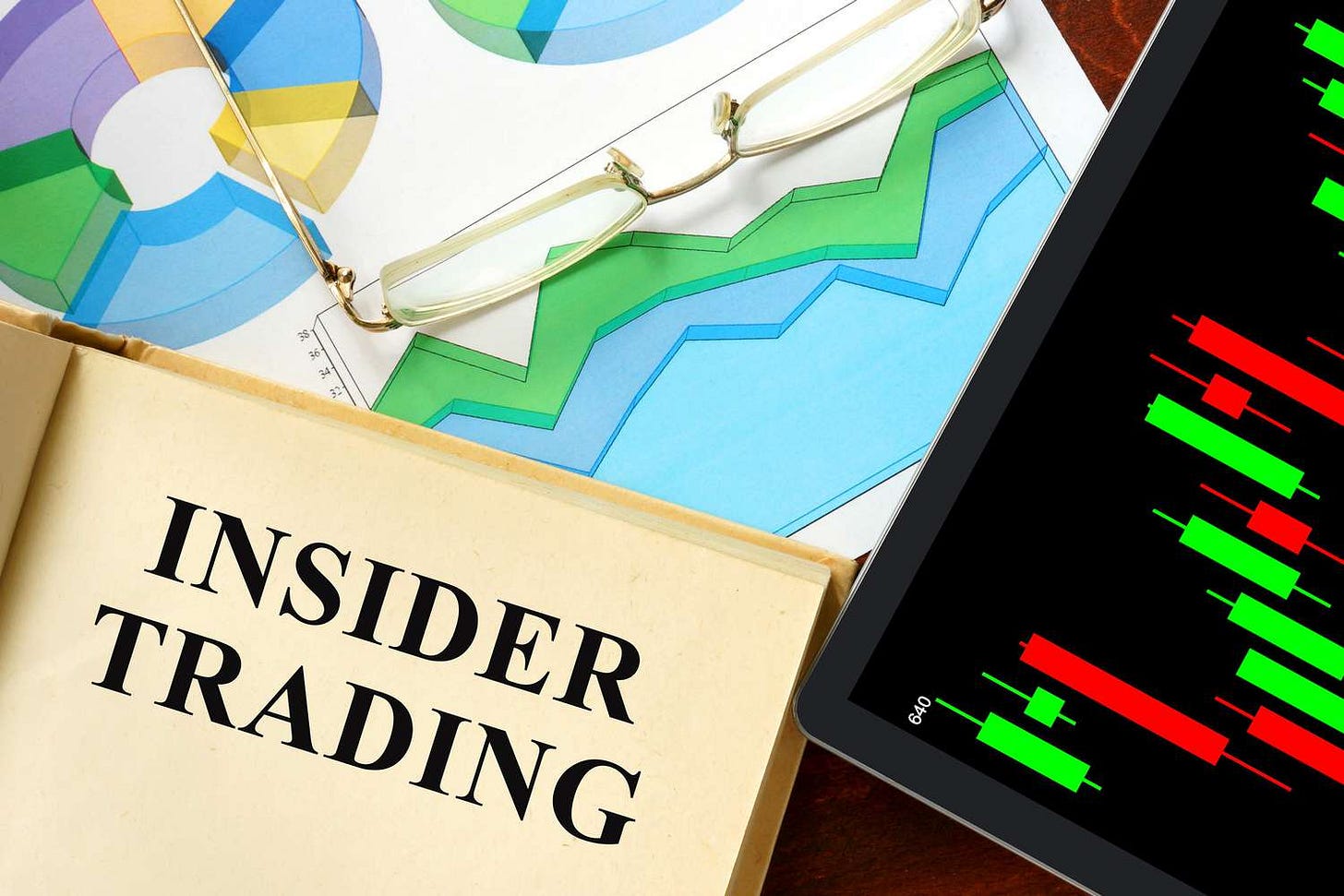Insider Buying And Selling
Bullish and Bearish signals?
What is Insider Trading?
Insider trading is when someone trades a public company's stock with information that isn’t public and is material.
Insider trading can be both legal and illegal. Today we will focus on the legal aspect which is when an insider buys or sells stocks and reports it. This is essentially an insider transaction.
Insiders can be anyone ranging from a director of a business to the CEO and Chairman.
Insider Buying
One of the greatest investors of all time Peter Lynch was famously quoted for saying “insiders might sell their shares for any number of reasons; but they buy them only for one: they think the price will rise.”
This is why we consider insider buying to be a bullish signal. We see this as a strong signal that management believe their share price will go up and who better to look to than those who are in the day to day running of a Company or those who have information that we as smaller investors are not privy to.
One important point to remember is that regardless of insider buying we should NEVER make this our sole reason to buy or sell stocks. Yes, this can make up part of our investment thesis but we should never rely on this signal.
At the end of this piece we will share some recent examples of both insider buying and selling.
Insider Selling
The opposite to the above is not necessarily true. Insider selling is not deemed to be a bearish signal.
Now the reason for this is quite simple, insiders may sell for financial reasons meaning they need to free up cash for personal reasons or they want to diversify their investments.
A study performed by the University of Oulu (Finland) found that the most common reason an insider may sell shares is diversification. This could be because an insider’s net worth becomes overly concentrated in their company stock and now may be the time for them to trim it.
Conclusion
Insider buying is a bullish signal but remember to never solely rely on this in your investment thesis.
Insider selling whilst may not be considered a good sign, isn’t always a red flag.
Examples of Insider Buying in 2024
NEE
Director Kirk H Bought 20,000 shares for a total cost of $1,116,800 (average cost ($55.84)
EL
Director Jennifer H Bought 1,350 shares for a total cost of $198,045 (average cost $146.70)
OXY
Berkshire Hathaway (10% owner) Bought 4,302,324 shares for a total cost of $245,878,000 (average cost of $57.15)
UPS
Director Eva B Bought 1,400 shares for a total cost of $199,220 (average cost of $142.30)
SMCI
Director Shiu C Bought 2,000 shares for a total cost of $1,136,000 (average cost of $568)
INTC
CEO Patrick G Bought 5,800 shares for a total cost of $249,752 (average cost of $43)
KMB
Director Mark S Bought 827 shares for a total cost of $100,050 (average cost of $120.98)
Examples of Insider Selling in 2024
CAT
Group President Lange D Sold 21,194 shares for a total cost of $6,899,070 (average cost of $325.52)
PG
CEO Ma F Sold 25,000 shares for a total cost of $3,975,000 (average cost of $159)
MSFT
Vice Chair Bradford S Sold 48,303 shares for a total cost of $$19,871,400 (average cost of $411.39)
BLK
CFO Martin S Sold 7,036 shares for a total cost of $5,532,830 (average cost of $786.36)
V
CEO Ryan M Sold 8,150 shares for a total cost of $2,228,130 (average cost of $273.39)
NFLX
Executive Chairman Reed H Sold 20,734 shares for a total cost of $11,759,500 (average cost of $567.16)
Note
I am not a financial advisor or licensed professional. Nothing I say or produce anywhere, should be considered as advice. All content is for educational purposes only. I am not responsible for any financial losses or gains. Invest and trade at your own risk.


